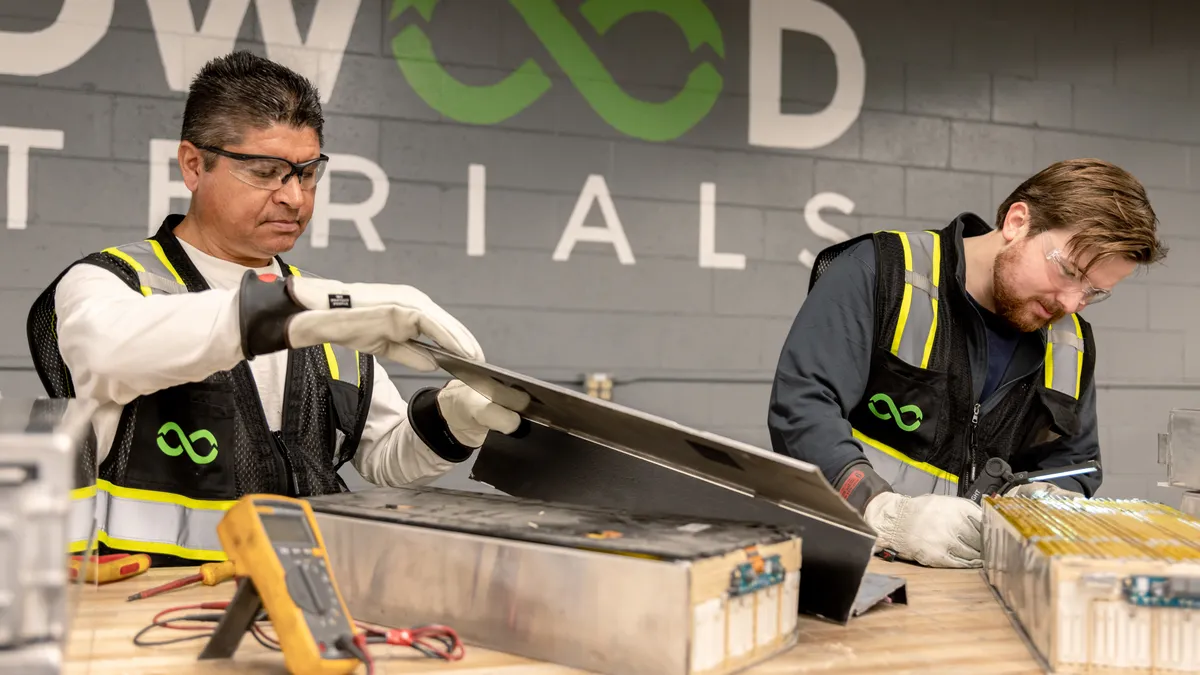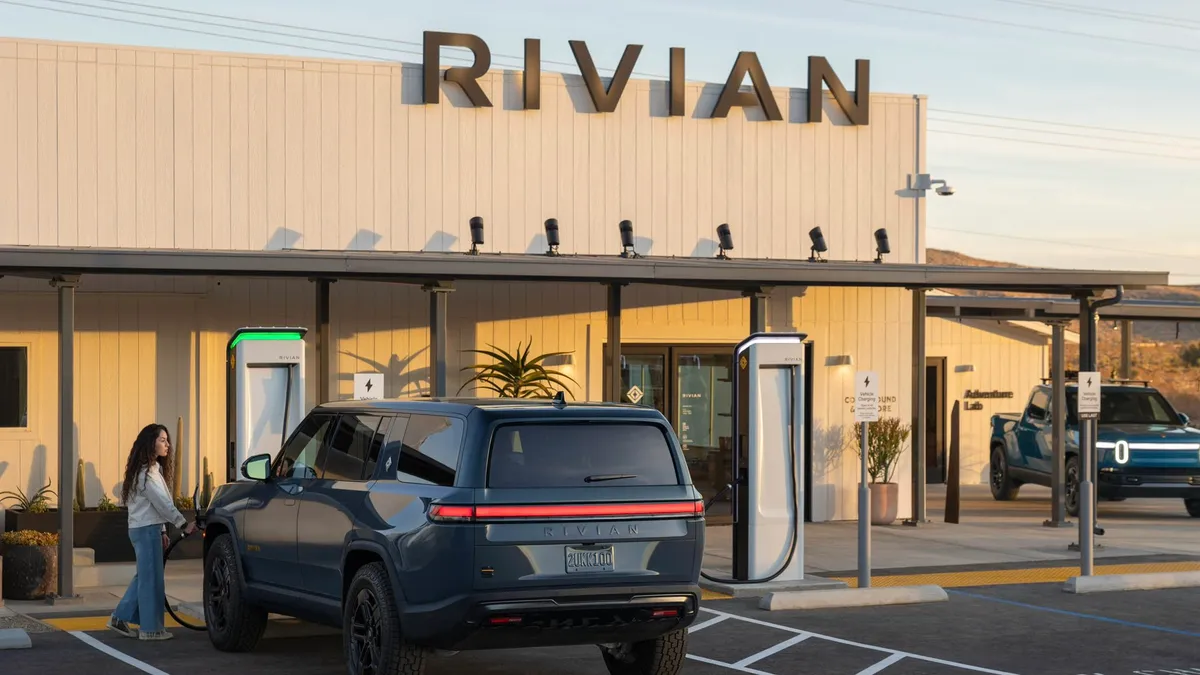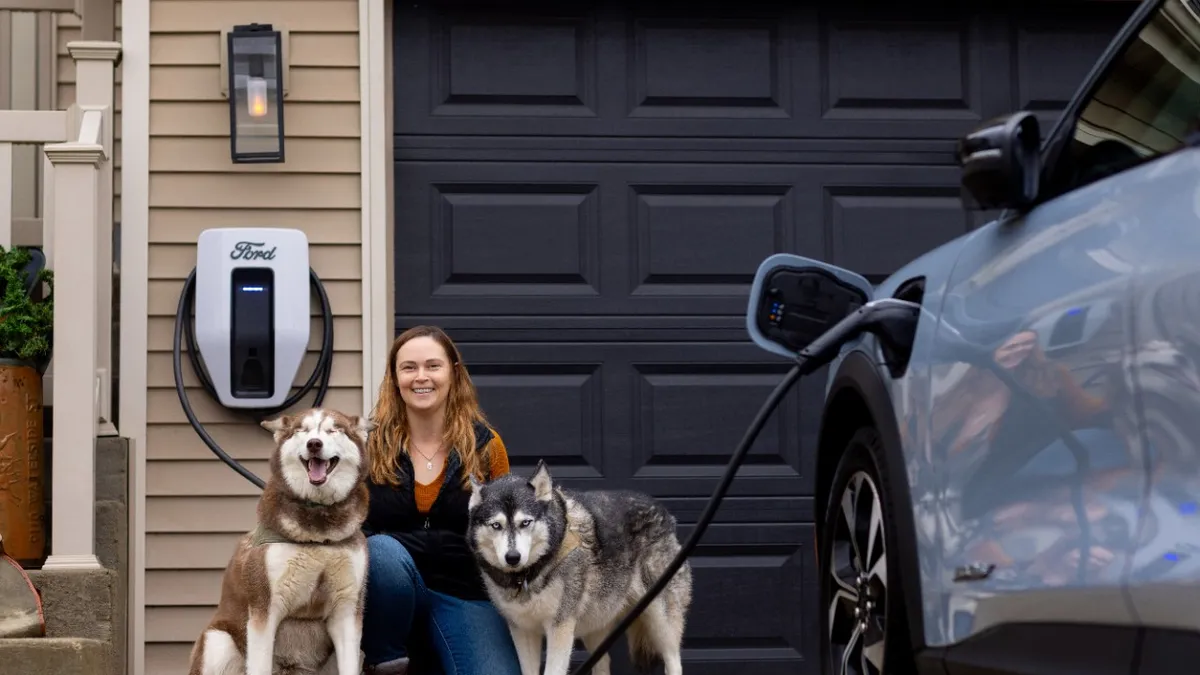Dive Brief:
- Toyota will source cathode active materials and anode copper foil from battery recycler Redwood Materials, the companies announced last week.
- The automaker will use recycled materials to produce batteries at its upcoming North Carolina battery manufacturing plant.
- Redwood aims to supply Toyota with at least 20% recycled nickel and lithium, 50% recycled cobalt and 100% recycled copper for battery cell production.
Dive Insight:
The agreement will help Toyota establish a U.S. domestic supply chain for batteries and build on a previous agreement with Redwood that focused on collecting, testing and recycling Toyota hybrid electric vehicle batteries.
Toyota plans to recycle, remanufacture and repurpose nearly five million operating units, according to the company.
Using recycled raw materials such as lithium, nickel and copper can reduce the cost of producing new batteries, according to Redwood. The company says that active cathode materials and copper foil account for most of the costs of producing battery cells. But these crucial materials are currently manufactured entirely overseas and imported, leaving automakers heavily reliant on suppliers outside of the U.S., including companies in China.
Without establishing sufficient U.S. production of key materials for batteries, companies might have to offshore over $150 billion in economic value by 2030, according to Redwood. To bolster the domestic supply chain, the company aims to produce 100 GWh of cathode and anode components per year by 2025, which is enough to manufacture enough battery cells for 1 million EVs a year.
“Working with Redwood Materials, we are creating a circular supply chain to optimize logistics, expand refining, and ensure that the valuable metals recovered can be reintroduced into our future vehicles,” Christopher Yang, group vice president of business development at Toyota Motor North America, said in a statement.
Redwood is expanding its battery materials facility in Nevada and will start construction on its second facility outside Charleston, South Carolina, later this year. Both locations will recycle, process and manufacture battery materials.
“We’ll continue to work toward the sourcing and recycling of battery materials here in the United States to maximize these precious resources and reduce our carbon footprint in the process,” Sean Suggs, president of Toyota Battery Manufacturing, North Carolina, said in a statement.
Toyota plans to have its $14 billion battery production facility in North Carolina online in 2025.
Redwood Materials was founded by former Tesla co-founder and chief technology officer J.B. Straubel, who still serves on the electric automaker’s board of directors.
In August, Redwood announced it raised over $1 billion in a series D funding round. The company said it will use the funding to expand its U.S. battery supply chain, allowing producers to buy recycled battery materials domestically for the first time.
Redwood previously received a $2 billion loan commitment from the U.S. Department of Energy to expand its battery materials recycling capacity to support the growing EV market in the U.S.
In February 2022, Ford and Volvo signed an agreement with Redwood Materials to recycle end-of-life battery packs from hybrid and EVs in California.
Tesla’s battery supplier, Panasonic, also plans to use recycled cathode materials supplied by Redwood for its battery factory in Kansas, which is slated to begin production in 2025.














